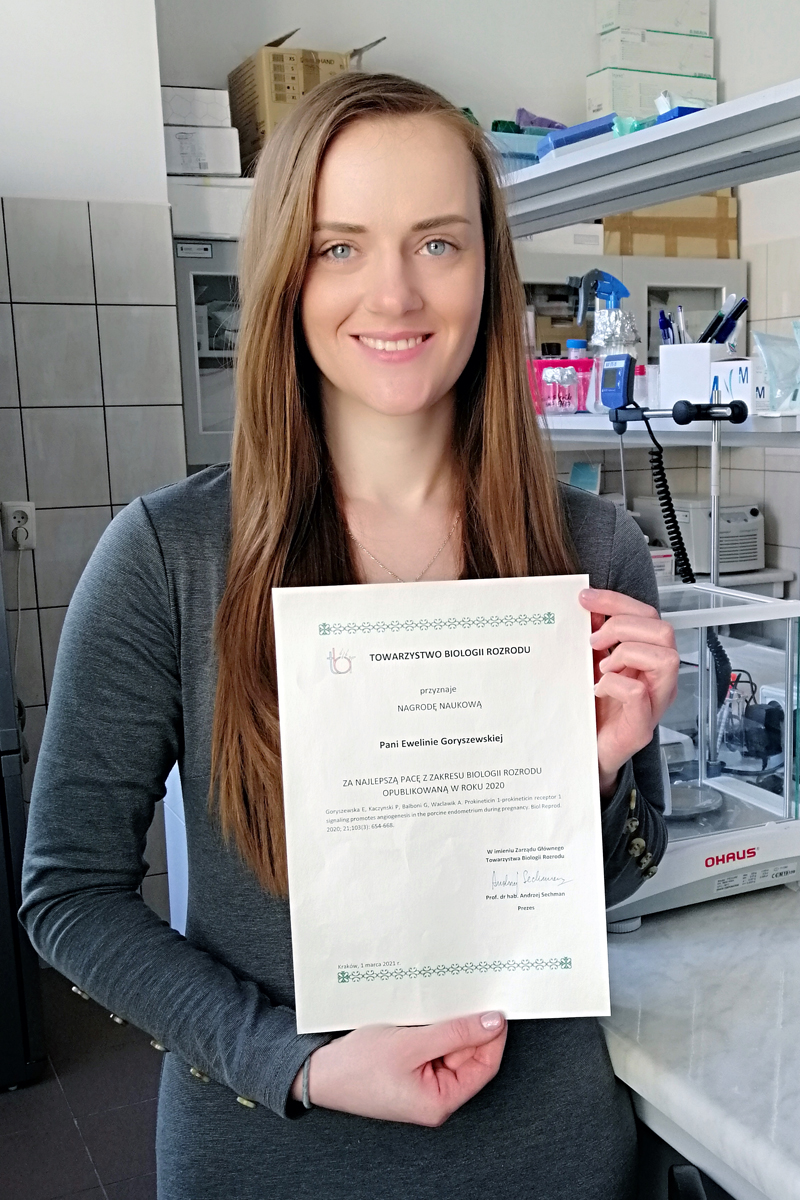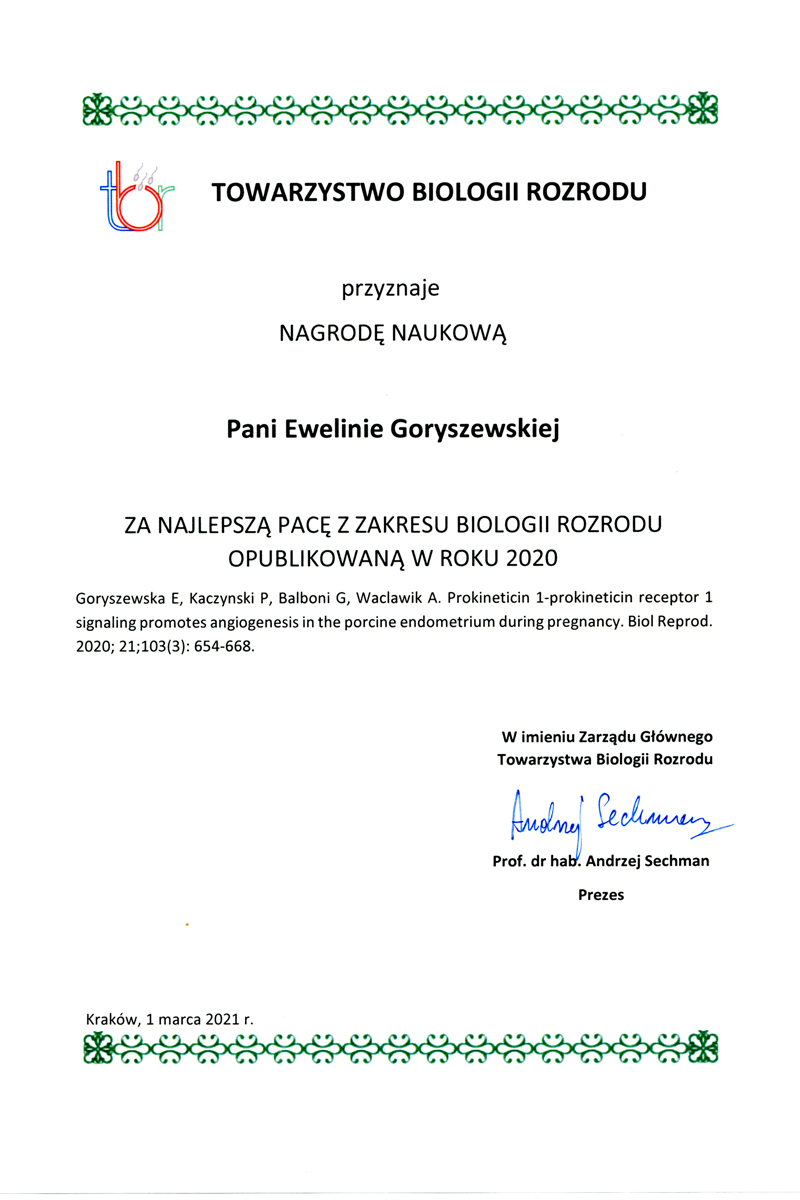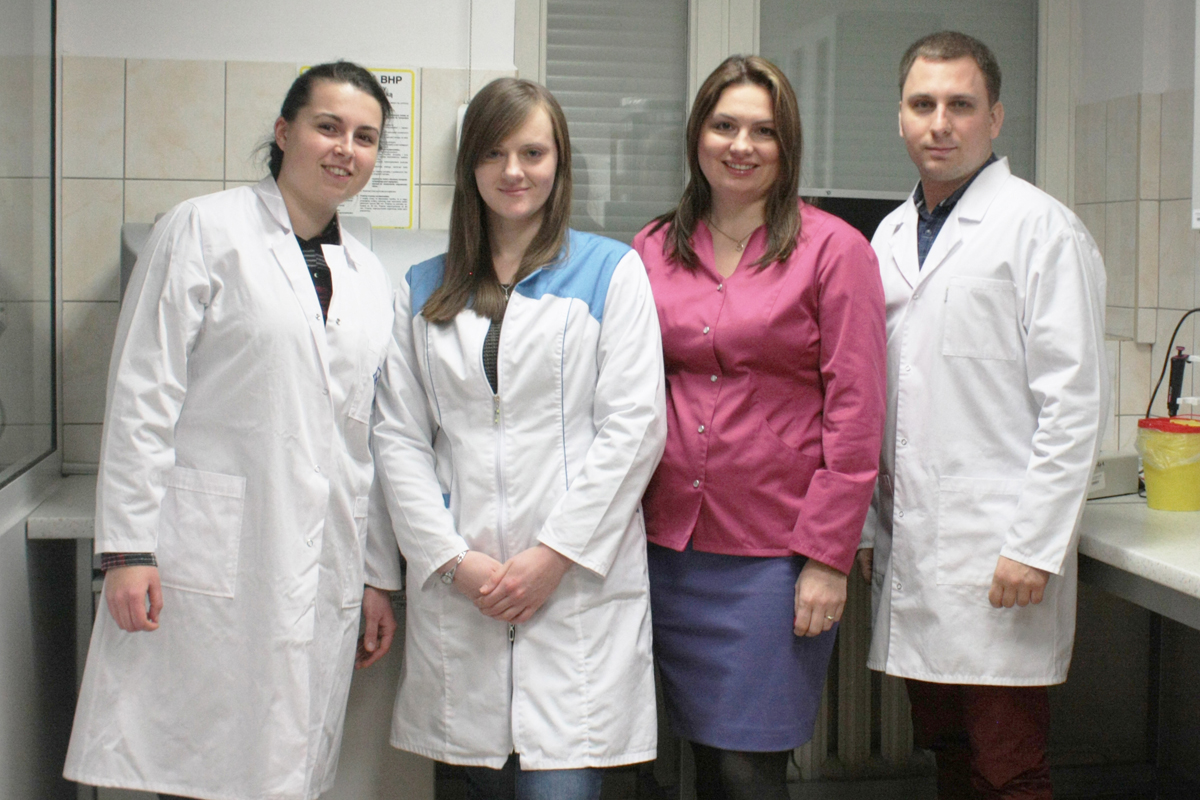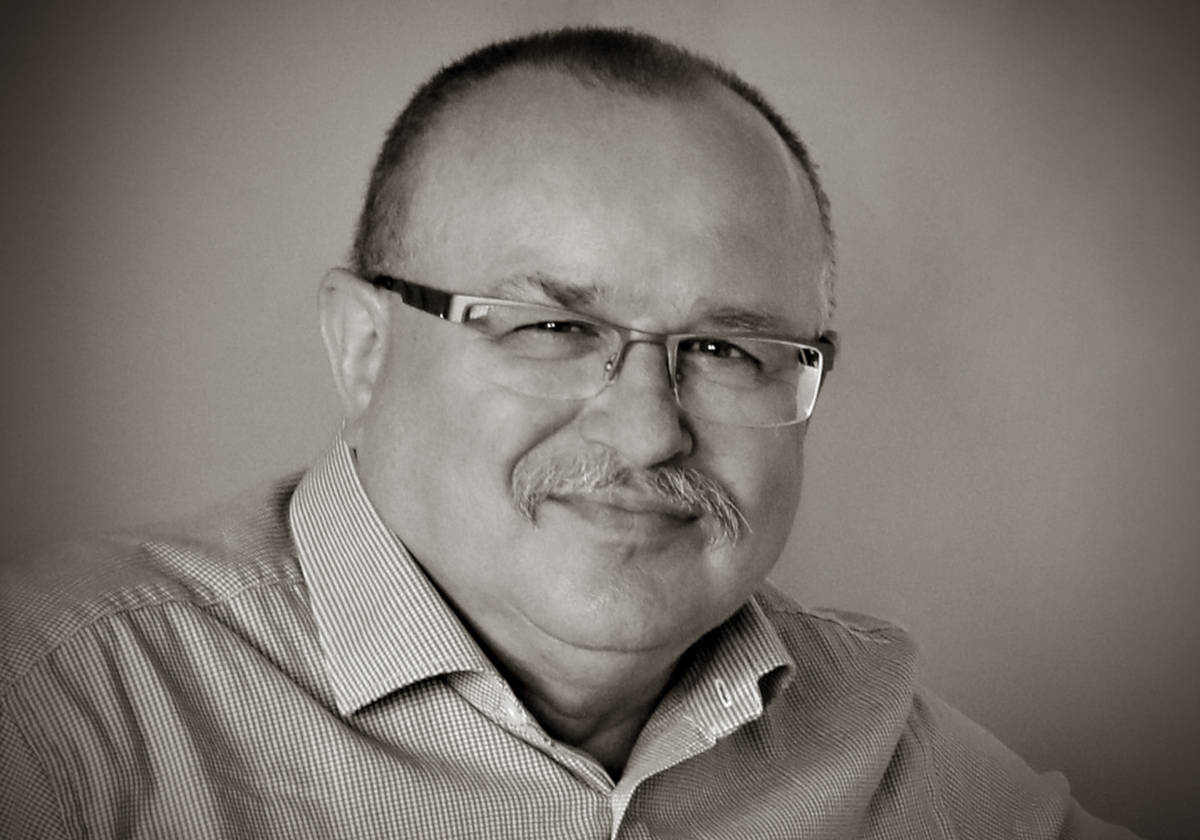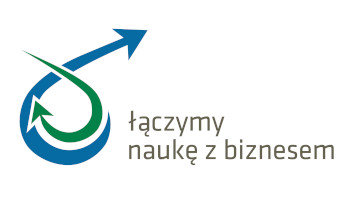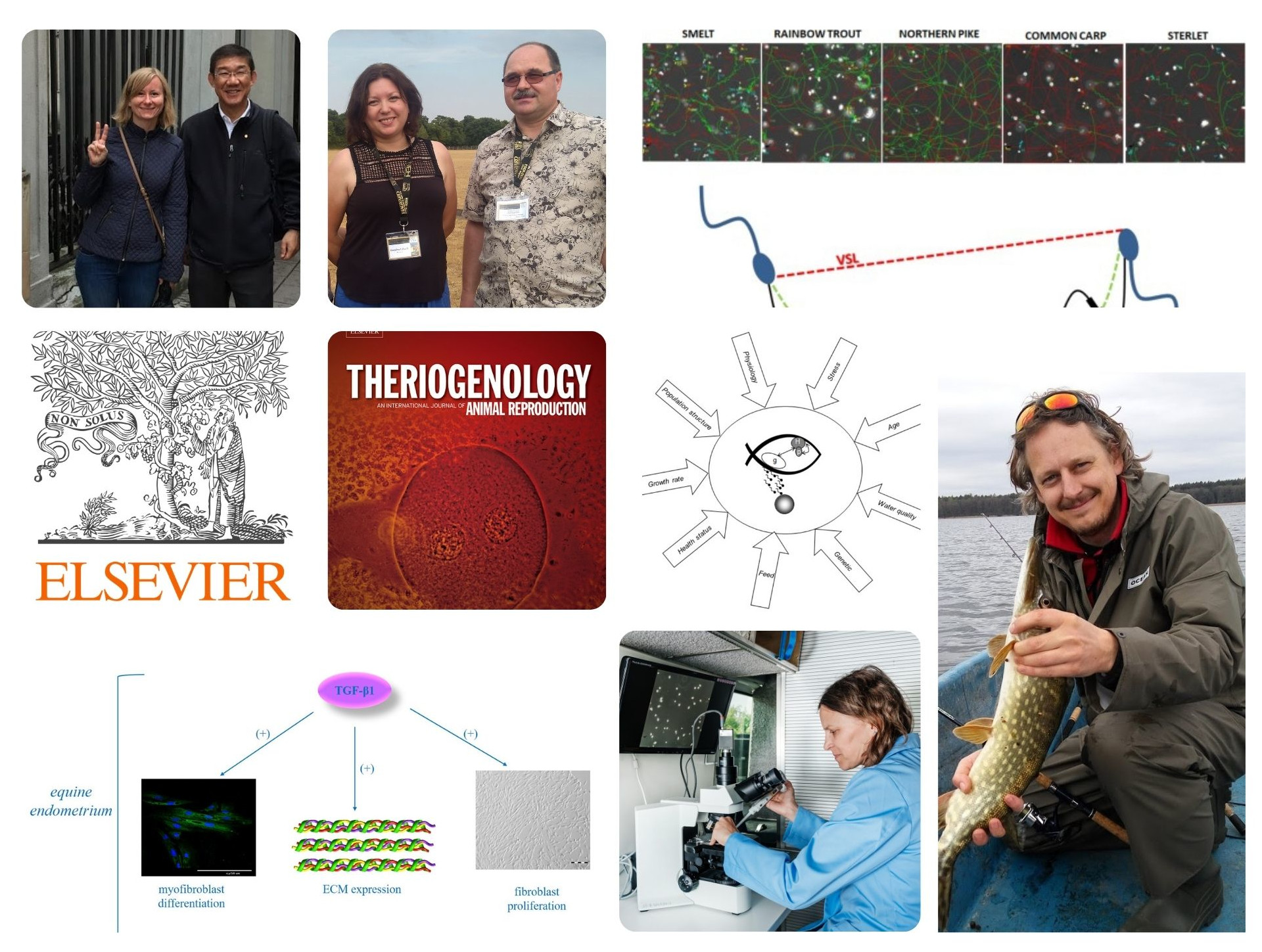Ewelina Goryszewska z Zespołu Mechanizmów Działania Hormonów otrzymała Nagrodę Naukową Towarzystwa Biologii Rozrodu za najlepszą pracę naukową z zakresu biologii rozrodu w roku 2020.
Publikacja „Prokineticin 1–prokineticin receptor 1 signaling promotes angiogenesis in the porcine endometrium during pregnancy” autorstwa mgr Eweliny Goryszewskiej, dr Piotra Kaczyńskiego i dr hab. Agnieszki Wacławik ukazała się w czasopiśmie Biology of Reproduction, 2020;103(3):654-668.
W nagrodzonej pracy autorzy opisali nowy mechanizm zaangażowany w proces rozwoju łożyska z udziałem prokinetycyny 1 i jej receptora PROKR1.
Naukowa Nagroda TBR przyznawana jest za pracę naukową z dziedziny biologii rozrodu opublikowaną w czasopiśmie krajowym lub zagranicznym dla naukowca, który nie ukończył 35 lat i jest pierwszym autorem pracy lub autorem korespondencyjnym.


